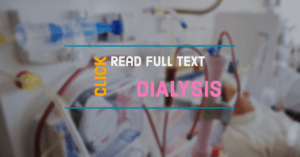Pain prevention during intravenous cannulation

“CoolSense was more efficacious in reducing the pain of intravenous cannulation than the EMLA cream. In the pediatric population, CoolSense appears to be a simple and rapid means of providing adequate analgesia for venous cannulation” Xess et al (2022).
Pinch off and catheter fracture

“Identify pinch off sign, especially with an upright check X-ray after chemoport placement. Consider repositioning of chemoport if pinch off sign is present” Lakshmi et al (2022).
Transillumination device for difficult peripheral IV access

“To compare the utility of transillumination device with traditional vein viewing in situations with difficult peripheral venous access in pediatric patients” Dutt et al (2022).
Community infusion service – Full Text

“An increasing number of drugs and blood products need to be delivered by intravenous infusion. In the Canterbury region of New Zealand, these have historically been delivered at a hospital site; however, some infusions could be delivered in a community setting without compromising patient safety” McGonigle et al (2022).
PICC and CLABSI reduction

“Our study confirmed that PICC was a superior alternative to CICC in preventing CLABSI in the adult hematology unit, while it posed a microbiological shift in local epidemiology” Nakaya et al (2022).
Needlestick among dental students

“Dental students had a high prevalence and low reporting rate of NSI exposure. Inadequate knowledge might increase the probability of NSI exposure” Huang et al (2022).
Peripheral IV catheter problem reduction – Retracted by publisher

Article Retracted by publisher
Subclavian artery injury during CVC placement – Full Text

“We report a case of a patient with complex medical history complicated by inadvertent right subclavian artery injury during central venous catheter insertion” Shiu (2022).
Neonatal PICC vascular injury – Full Text

“We investigated a case of a peripherally inserted central venous catheter associated with iliolumbar venous extravasation in an infant” Kurimoto et al (2022).
CLABSI reduction in pediatrics – Full Text

“Implementation of multiple interventions led to a successful reduction in the incidence of CLABSIs in our unit, with a sustained reduction over 1 year” Gauntt et al (2022).
Ultrasound-guided hemodialysis catheter tip positioning – Full Text

“This study investigated the efficacy of the RASS for US-guided tip positioning of antegrade-tunneled HDCs in patients with ESKD” Tampe et al (2022).
PICC inserted by interventional nephrologists – Full Text

“The results of our study showed high success and low complication rates for PICC insertion by nephrologists. These findings indicate that interventional nephrologists already skilled in other procedures can expand their field of activity and profit” Kim et al (2022).
Ultrasound guided peripheral IV insertion – Full Text

“We identified a number of implementation strategies to support future ultrasound and DIVA pathway implementation” Schults et al (2022).
OPAT in people who inject drugs – Full Text

“PWID have a range of antimicrobial delivery options that can be tailored in a patient-centred manner and thus are not limited to prolonged hospital admissions to receive intravenous antimicrobials for invasive infections” Attwood et al (2022).
Intraosseous access associated fat embolism – Full Text

“The results of our study seem to confirm that IIC can lead to PFE in a pediatric population and show that the PFE after IIC can be important (up to score 2 of Falzi)” Castiglioni et al (2022).
Hemothorax post implantable port insertion – Full Text

“We discuss possible causes of hemothorax in this patient and describe possible factors such as abnormal anatomy of vessels and body habitus contributing to this complication” Chacko et al (2022).
OPAT and inpatient-bed cost savings – Full Text

“These patients also had a total of 312 days of outpatient antibiotic therapy, which was an average of 21 days per patient. The total cost, if patients were admitted for those days, assuming a night cost £400, was £124,800, which was on average £8,320 per patient” Kwok et al (2022).
Upper arm peripheral IV catheter placement – Full Text

“The new peripheral intravenous catheter did not interrupt medical treatments as is common after placement, but safety administered the irritant drugs” Murayama et al (2022).
PICC line self care – Full Text

“It is more beneficial to promote patients’ self-nursing management ability, reduce anxiety, reduce the average cost of PICC pipeline maintenance, reduce the incidence of PICC-related complications, and enhance nursing satisfaction” Jiang et al (2022).
Intracavitary ECG implantable port placement – Full Text

“This indicated that the intracavitary ECG-guided tip positioning technique may improve the accuracy of tip catheter placement and shorten the operation time, thus reducing ionizing radiation caused by repeated positioning” Shi et al (2022).
IV complications and management – Full Text

“Even if the CVL utilization ratio is 70.1% of the patient-days in Europe, the decision of CVL insertion should be carefully balanced with the risk of complications” Timsit et al (2022).
Ideal tip location for dialysis catheters

“When utilising tunnelled CVCs with a step-tip design inserted via the right IJV, location of the catheter tip in the SVC is associated with reduced occurrence of catheter dysfunction as compared to either the CAJ or DRA” Soh et al (2022).
Tunneled CVC associated hemorrhage

“This case demonstrates the risk of significant hemorrhage when a tunneled CVC is damaged at this location and the potential need for the urgent removal of the retained component to prevent recurrence of bleeding” Bogdan and Malavade (2022).
Pediatric trauma blood transfusion – Full Text

“Relocation of un-crossmatched blood storage to the ED decreased the time to blood transfusion. This system-based intervention should be considered a strategy for reducing delays in transfusion in time-critical settings” Sullivan et al (2022).
Fluid challenge in children

“This study aimed to conduct pooled analyses to identify those who may be more likely to respond to fluid boluses as well as characterize clinical changes associated with fluid boluses” Loomba et al (2022).
Central venous catheter malposition

“Clinically significant catheter malposition and pneumothorax after CVC insertion are low. In this study, replaced and non-replaced “malpositioned” catheters had similar catheter duration and rates of complications, challenging the current dogma of CVC malposition practice” Ablordeppey et al (2022).
Catheter occlusion rates by CVC type

“We retrospectively compared risk factors for unplanned removal of two commonly used CVCs, peripherally inserted central catheters (PICCs) and tunneled CVCs, to propose which is the better device” Miyagishima et al (2022).
Citrate IV catheter lock

“Studies showed that sodium citrate at concentrations from 23% to 47% is antibacterial, and a non-randomized clinical trial showed that its use as a lock solution in dialysis catheters greatly decreased the incidence of CRBSI” Ash (2022).
ACF anatomical variation – Full Text

“Physicians or other health care providers who perform procedures in the cubital fossa, such as venipuncture or vascular access, should be aware of such an anatomical variation” Newton et al (2022).
MARSI in patients undergoing bone marrow transplantation

“Skin breakdown occurring around central line dressings increases the risk for infection and bacteremia in all patients. The risk is magnified when experienced in pediatric patients receiving marrow-ablative therapy” Melhorn and Burkett (2022).

